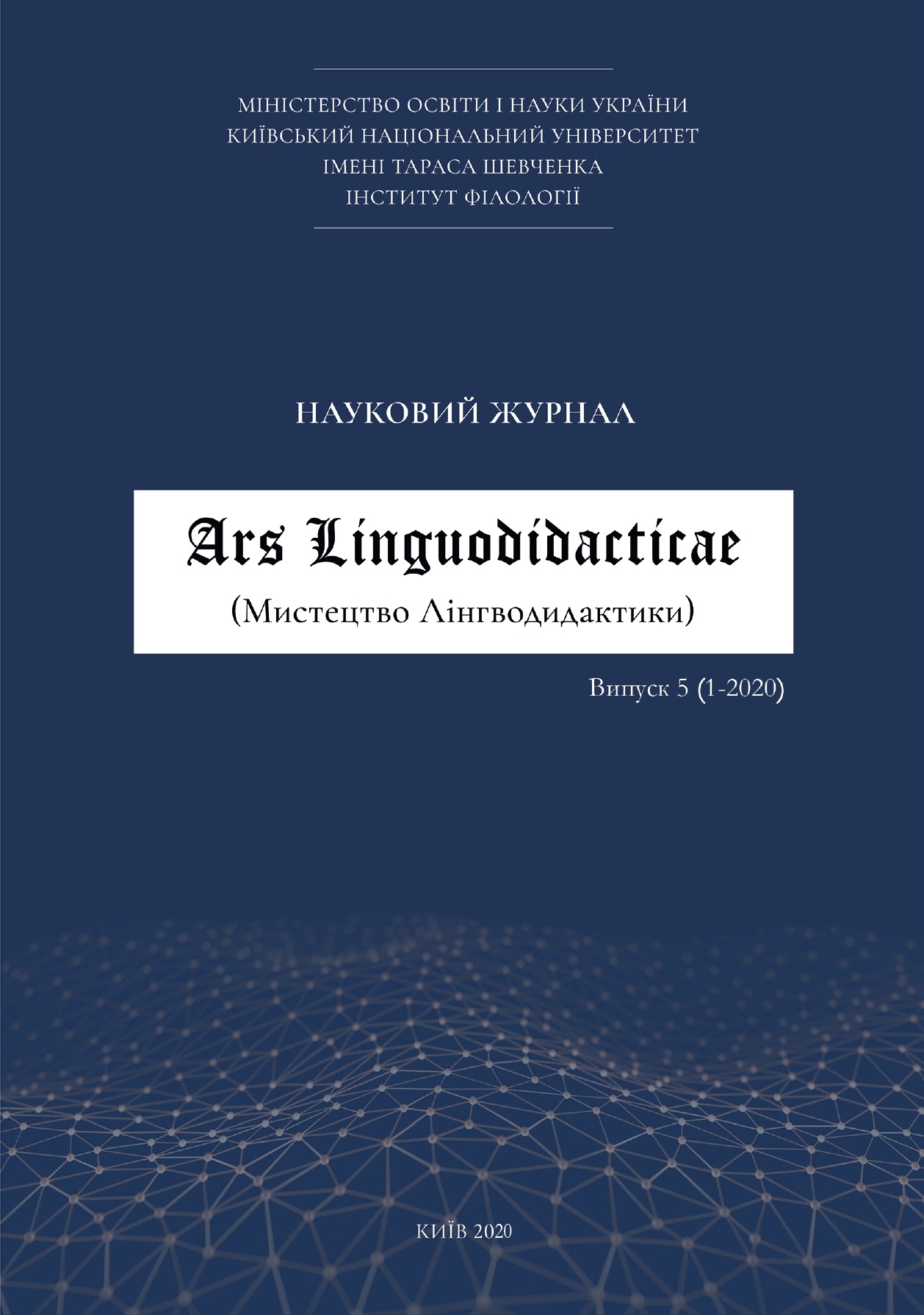LATERAL THINKING TECHNIQUES IN ENHANCING ESP SKILLS
DOI:
https://doi.org/10.17721/2663-0303.2020.5.03Abstract
The paper outlines the defining value of lateral thinking in the FL and ESP learning. The Framework for FL and ESP training, based on De Bono lateral thinking system and its Kotler’s & de Bes’s adaptations, has been developed by the authors in the context of Ukrainian University. The authors’ idea to boost FL skills through international project participation has led to shifting from conventional knowledge-reproduction to knowledgetransformation scheme in FL learning process. As a result, activating lateral techniques such as alternative focus, force-fit analogy, unexpected choice, manipulative information distortion, provocation, specially created conflict, challenging the conventional idea/vision, imaginative verbalization, unconventional metaphor, etc. turn ESP learning process into searching for an indirect and creative way to solve problems by means of using reasoning that is not immediately obvious. The research, presented in the article, relies on the experimental training of the first-year Education Majors of the Master’s program (n=33) who admitted a positive effect of lateral thinking techniques on general linguistic range of communicative competence. It is inferred from the study, that lateral thinking techniques have contributed to progress in both language skills and thinking abilities and led to improvement in students’ academic achievements and enhancement of creativity.
Keywords: lateral thinking techniques, international project activities, knowledge-transformation approach.
Downloads
Published
How to Cite
Issue
Section
License
Copyright (c) 2020 Олеся Любашенко, Тамара Кавицька

This work is licensed under a Creative Commons Attribution-ShareAlike 4.0 International License.
This work is licensed under a Creative Commons Attribution-NonCommercial 4.0 International License.
Copyright policy according to the terms of the license: Creative Commons "Attribution-NonCommercial" 4.0 International (CC BY-NC 4.0).
Authors who publish their articles in "Ars Linguodidacticae" (Open Access Journal) retain the following rights:
- The authors retain the copyright of their article and grant the Ars Linguodidacticae journal the right to first publish the manuscript of their article under the Creative Commons (CC BY-NC 4.0) Attribution License, which allows others to freely distribute the published work with mandatory reference to the author of the original work and first original publication in the Ars Linguodidacticae journal. An indication of the retention of the copyright of the work is provided on the title page of the article.
- The authors reserve the right to enter into separate contracts for the non-exclusive distribution of their article as published in Ars Linguodidacticae (e.g., placing the article in electronic libraries, archives and catalogs or publishing it as part of institute collections and monographs), provided that a full reference to the first original publication in Ars Linguodidacticae is given.
- The policy of the "Ars Linguodidacticae" journal allows and encourages authors to post a manuscript both before and during editorial processing, as this promotes productive scientific discussion and has a positive effect on the speed and dynamics of citing the article.
The editorial board reserves publishing rights to:
- the collated original articles and to the entire issue of the journal.
- the design of the journal and original illustrative and supplementary materials.
- the reprint reprints of the Journal in printed and electronic form.
The copyright policy is carried out according to the terms of the license: Creative Commons "Attribution-NonCommercial" 4.0 International (CC BY-NC 4.0).
For more information, please read the full text of the CC BY-NC 4.0 Public License.
Creative Commons Attribution-NonCommercial 4.0 International License.


